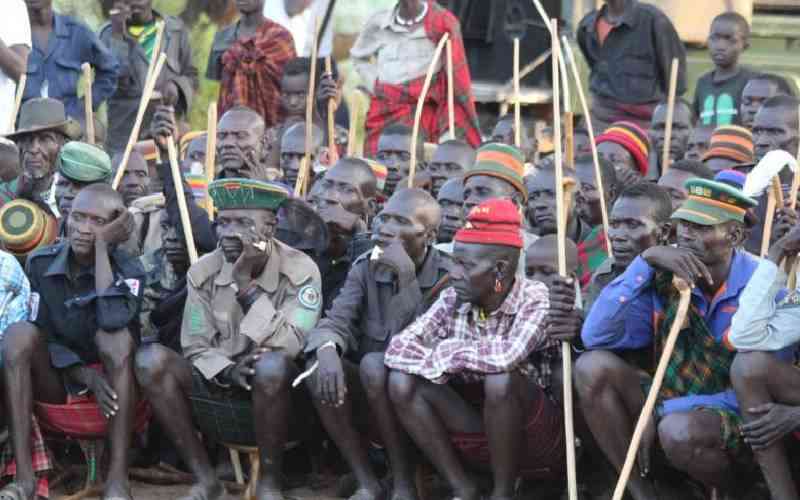Some of the Kenyan herders Loya and Lokiriama border point after returning from Uganda last month. [Lucas Ngasike, Standard]
×
The Standard e-Paper
Fearless, Trusted News

Some of the Kenyan herders Loya and Lokiriama border point after returning from Uganda last month. [Lucas Ngasike, Standard]
Several herders who fled Uganda last month following an order by President Yoweri Museveni have vowed to return to the neighbouring country complaining over the lack of water and pasture on the Kenyan side.